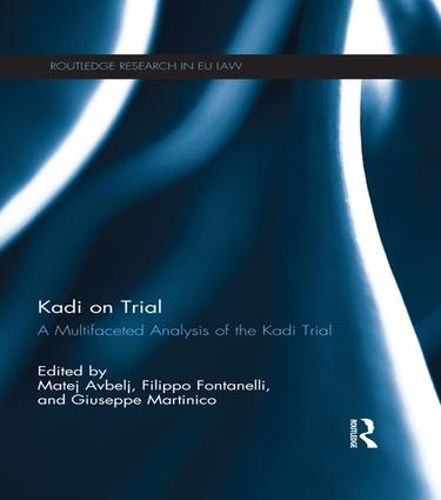Readings Newsletter
Become a Readings Member to make your shopping experience even easier.
Sign in or sign up for free!
You’re not far away from qualifying for FREE standard shipping within Australia
You’ve qualified for FREE standard shipping within Australia
The cart is loading…






The judgment of the European Court of Justice concerning the Kadi case has raised substantive and procedural issues that have caught the attention of scholars from many disciplines including EU law, constitutional law, international law and jurisprudence. This book offers a comprehensive view of the Kadi case, and explores specific issues that are anticipated to resonate beyond the immediate case from which they derive.
The first part of the volume sets out an analysis of the new judgment of the Court, favouring a contextual reading of what is the latest link in a judicial chain. The following three parts offer interdisciplinary accounts of the decision of the European Court of Justice, including legal theory, constitutional law, and international law. The book closes with an epilogue by Ernst-Ulrich Petersmann, who studies the role of the Kadi case in the methodology of international law and its contribution to the concept of global justice.
The book brings together legal scholars from a range of fields, and discusses pressing topics such as the European Union’s objective of ‘the strict observance and the development of international law’, the EU as a site of global governance, constitutional pluralism and the protections of fundamental rights.
$9.00 standard shipping within Australia
FREE standard shipping within Australia for orders over $100.00
Express & International shipping calculated at checkout
The judgment of the European Court of Justice concerning the Kadi case has raised substantive and procedural issues that have caught the attention of scholars from many disciplines including EU law, constitutional law, international law and jurisprudence. This book offers a comprehensive view of the Kadi case, and explores specific issues that are anticipated to resonate beyond the immediate case from which they derive.
The first part of the volume sets out an analysis of the new judgment of the Court, favouring a contextual reading of what is the latest link in a judicial chain. The following three parts offer interdisciplinary accounts of the decision of the European Court of Justice, including legal theory, constitutional law, and international law. The book closes with an epilogue by Ernst-Ulrich Petersmann, who studies the role of the Kadi case in the methodology of international law and its contribution to the concept of global justice.
The book brings together legal scholars from a range of fields, and discusses pressing topics such as the European Union’s objective of ‘the strict observance and the development of international law’, the EU as a site of global governance, constitutional pluralism and the protections of fundamental rights.